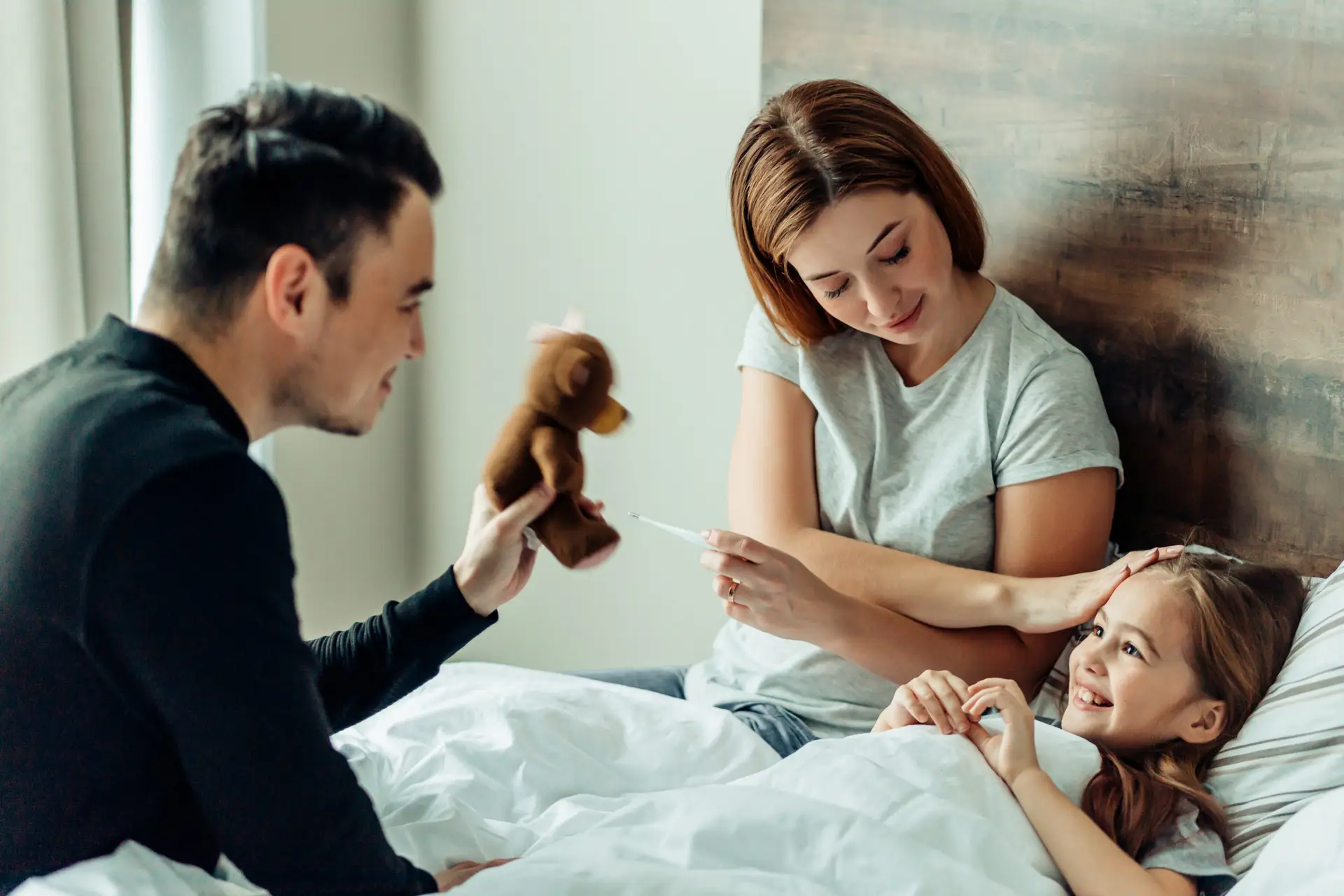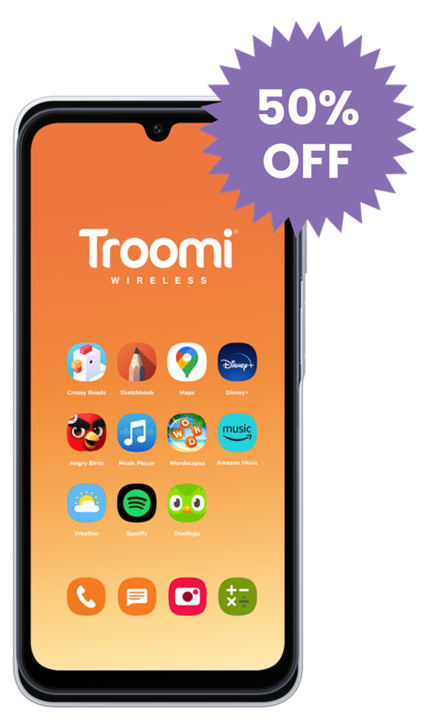As parents, we do what we can to keep our kids healthy and safe. When they’re healthy, we encourage them to have good diets. When they’re sick, we make sure they get rest and plenty of water. What if they’re really sick or have a chronic illness and a doctor is needed? How do we keep them safe with prescription drugs? How do we keep them safe from being peer pressured over phone calls, texts, or online to abuse prescription drugs?
What Are Prescriptive Drugs?
Prescription drugs legally require a medical prescription from a physician. In direct contrast with over-the-counter drugs, which can be obtained without a prescription. What are examples of prescription drugs? Opioids (pain killers), depressants (anxiety or sleep medication), and stimulants (used for ADHD) are all examples of prescription drugs. Prescription drug side effects can be numerous and must be listed on the container.
Prescription drugs—if used correctly—can be very helpful for helping kids when they are sick. Unfortunately, there are some facts about prescription drug abuse that suggest not everyone uses them correctly. The CDC found that around 50,000 children (five and younger) are brought to the emergency room every year due to unsupervised consumption of medication. In fact, nearly 70% of ER visits of kids ages one to two are because of accidental consumption of medication. So how do we keep our kids safe while still keeping necessary medication in our homes?
Tips for Keeping Kids Safe from Medicine
You’ve got enough to worry about with your everyday responsibilities as a parent, so keep your kids safe from accidentally consuming medication with these simple tips.
Store Medications in a Safe, Secure Place
When storing your medication, make sure it is secured in a dry place (like a locked cabinet), out-of-sight, and returned to its place after use. While you might think a high shelf is sufficiently out of reach, toddlers are good at getting to hard-to-reach places and opening childproof locks. Make sure it’s not a place with a lot of humidity or moisture such as a bathroom or under a sink.
Only Use the Measuring Spoon or Cap that Comes with the Medication
Never use different spoons to measure medication. Using the wrong measuring tools is a surefire way to make a dangerous mistake in taking medication. Use the right tools to make sure you take the right dose. By using the designated tools, you can also decrease the risk of your child picking up the dosing spoon you used and consuming any residual medication.
Secure Medication Lids or Caps After Using
When you are done taking or administering a medication, make sure the cap or lid is closed tightly. Don’t simply place the lid on to; twist it until it clicks. Again, make sure to return it to the safe space you keep it. If you are using pill boxes to keep track of days, make sure they are in a locked cabinet and out-of-sight.
Take Your Medication Out of Sight of Children
Kids learn from example. Make sure you take your medication in the bathroom or in a closed room so your kids don’t watch you and try to copy what you’re doing.
Remember the Five R’s of Medication Safety
The five R’s of medicine are the right drug, right dose, right time, right route, and right person. Keeping track of these five things is critical. Read the medicine names out loud when administering or taking a dose to make sure it’s the right one and consider keeping a medication calendar to avoid missing or doubling dosages.
Be Ready to Call Poison Control (1-800-222-1222)
Keep the number for poison control on the fridge and make sure family, friends, and babysitters know where it is. You can also add the number into your child’s Troomi phone as a safelisted and/or emergency contact. Poison control is open 24/7, so call if you ever suspect your child may have taken medication or is having a reaction after eating anything. They can also answer general questions about medication and dosage.
Keep Activated Charcoal in Your Home
Activated charcoal can be taken if advised by poison control. It can help with overdosages and accidental double doses. Only use activated charcoal if poison control or 911 recommends it.
Teach Kids to Never Take Medication from Strangers or Consume it when They Find It
Teach children not to eat or drink anything from strangers, even when it looks like candy or juice. Also teach them to only take medicine from you, doctors, and other designated individuals. This can also prevent missed or double dosages.
Keep Kids Safe from Visitors’ Medication
Kids are curious and visitors’ bags or luggage aren’t safe from their prying fingers. When family comes to stay, ask that they keep their medication in a safe place, away from kids and toddlers. If someone is stopping by for a chat, put their bag up high. Teach your kids that people’s purses are private property and that they shouldn’t search through them. And be sure to teach your family that they should never give medication to your children without consulting you first.
Over-the-Counter isn’t Safer
Some people often make the assumption that just because a medication isn’t a prescription, it’s safer. Taking too much of anything—even vitamins—can be harmful. Keep all medication, vitamins, and ointments out of reach of children.
Pharmacies Keep Records of Medications
Consider keeping the same pharmacy chain when moving since pharmacies keep track of your medications and refills. They can also provide information or refills online. If you don’t have a consistent pharmacy, make sure to keep a record of your medications yourself.
Be Aware of Dosage or Eating with Food
Certain medications need to be finished even if you start to feel better, especially if you’re taking an antibiotic. Talk with the pharmacy, your doctor, or poison control to make sure your medications don’t have conflicting ingredients. Make sure you also take medication as prescribed. Some need to be taken on an empty stomach while others should be taken with water or even with food.
Don’t Take Expired Medication
Go through your medicine cabinet often and check for expired medication. If you find anything past the expiration date, dispose of it properly. Some communities have a take-back program. You can also get rid of medications by placing them in a sealable plastic bag containing something inedible/undesirable like coffee grounds, dirt, or kitty-litter. This will keep any people or animals from stealing medications from the trash and eating them. (Check the FDA’s flush list or take it to the police station if you are concerned about disposing of a certain medication.)
Basic Care for Sick Kids
When kids are sick with a mild cold or more serious flu, there are some basic things that parents can do to treat them without medication. Make sure kids get plenty of rest and stay warm and dry. It’s also critical to keep them hydrated. Have your sick kiddos drink water or clear fluids like juices or broths, and take them to the doctor when needed.
More Facts About Prescription Drug Abuse
While prescription medication can be good when used appropriately, there are dangers when those same medications are abused. What do we mean when we say prescription drug abuse? Any medication use that isn’t in accordance with the prescription, such as taking a higher dosage, taking doses more frequently than prescribed, or taking medication prescribed to someone else, falls under the category of prescription drug abuse.
Teenagers are at great risk of abusing prescription drugs. They have access to these medications from friends or family who have prescriptions, but they may not understand how dangerous prescription drugs can be. Many might assume prescription drugs are safer because they are given by a doctor and the doses are on the side of the bottle. However, taking the medications without a prescription is dangerous as well as illegal. Prescription medications are balanced by a doctor for specific individuals, and any medications already being taken by those individuals are taken into account when the prescription is administered. Medications can react with each other, meaning that “trailmixing” (a popular way to take drugs in the early 2000’s that involves mixing handfuls of medication and taking them with alcohol or energy drinks) can lead to unexpected and often lethal side effects. Even taking certain medications with different foods or drinks can change how the medication is absorbed into your body.
Teenagers may also be exposed to prescription drug abuse through social media or group text threads with peers.
So How Do We Keep Our Kids and Teens Safe?
We’ve talked about social media and drug use before, but let’s talk about how to keep kids safe from prescription drug abuse. Build a culture of trust to make sure your kids are safe and comfortable when they talk to you. Creating this trust will take more than just a one-time conversation. They may ask you, “what are prescriptive drugs?” As a part of talking about the dangers of prescription drugs, talk to your kids about how to say “no” and resist peer pressure. Be aware of potentially abused drugs inside your medicine cabinet. Consider getting a locked container for those medications and keep track of their usage. Dispose of unused or expired medication appropriately.
Troomi phones are designed so only contacts that you approve of can contact your child through a feature called SafeListing™. This means they can’t be reached by strangers who may invite them to use prescription drugs in a dangerous way. In fact, Troomi phones also have SafeListing for websites, preventing kids from reaching hazardous online pharmacies that don’t have FDA regulations where they could acquire prescription medications out of your control. Keeping your kids safe and healthy is a priority, so make it easier with Troomi.


